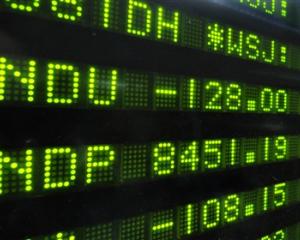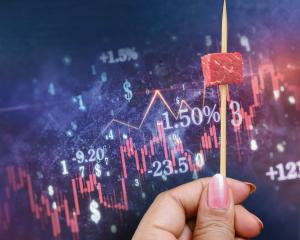We are all aware the price of petrol has risen sharply over the past two weeks.
The prime reason has been the turmoil in the Middle East-North Africa region (Mena) which accounts for 35% of global oil production and the disruption could derail the wider global recovery.
At this stage, the greater Western powers, while concerned, are not interfering, letting them sort it out themselves.
There are always companies, individuals and fund managers which see such disruptions as an opportunity to make money.
In particular, the trading in futures of commodities such as gold, copper, agricultural products, crude oil and heating oil has increased markedly.
At the end of 2010, hedge funds began shifting from short positions to long positions in the market mostly because of cheap money with near zero interest rates from bank deposits.
Commodities tracked by the Thomson Reuters/Jefferies CRB index gained 11% in 2010, following a 23% gain in 2009.
New investments in commodity funds in 2010 were $US50 billion.
Buying shares directly in companies that trade in commodities is subject to the company viability and market volatility.
It requires a considerable amount of money to get a diversified exposure but commodities should only be one asset class in an overall portfolio.
You have to own a dairy farm to be a holder of New Zealand's largest commodity company, Fonterra.
Statistics provided from various sources (including historical performance) show that commodities have lower volatility than equities over a longer term.
Several commodity funds are available to New Zealanders, most being hedge funds in Australian dollars that are not hedged to NZ dollars.
Pathfinder Asset Management has a Commodity Plus fund that was launched in May 2009.
It is a Pie fund (not a hedge fund) of just over $NZ25 million.
As a Pie it has advantages for New Zealanders re taxation compared with hedge funds in Australian dollars.
Pathfinder funds track the Deutsche Bank Liquid Commodity Index Mean Reversion Plus Access index denominated in US dollars but 100% hedged to the NZ dollar.
The index is a basket of six commodities of crude oil, heating oil, gold, aluminum, wheat and corn.
The weighting of the index holdings is reviewed daily and changes are made in response to market changes, not static weights.
It can also change from 100% commodities to 100% cash as required.
The interaction between supply and demand leads to periods of over and under valuations for commodities so the weights of the individual commodities in the index will change accordingly.
For example, back in 2008 when oil hit a historical high of $US140 a barrel, the index had a comparatively low exposure to oil but was heavily weighted to the metals of aluminum and gold.
This is the mean reversion of overweighting the commodities that are cheap and under weighting those that are relatively expensive about the long-term mean.
As said above, the amount held in commodities in a portfolio will depend on the size of the portfolio.
However, both are a good hedge against inflation and provide stability due to their lower volatility.
To find out more about the Pathfinder Commodity Plus fund contact your financial adviser.
• Peter Smith is an authorised financial adviser and the principal of Kepler Group Otago Ltd. Email: pete@keplergroup.co.nz. A disclosure statement is available on request and free of charge.








